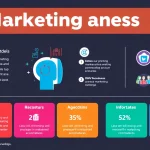Understanding AI Marketing Agents
The advent of technology has ushered in a new era in marketing, enabling businesses to adopt innovative strategies that resonate with their audiences. Among the most transformative technologies are AI marketing agents, designed to streamline and enhance marketing efforts through automation and intelligent data analysis. These agents represent a blend of artificial intelligence and marketing strategies, revolutionizing how companies engage their customers and manage campaigns. In this article, we will explore the integral aspects of AI marketing agents to help you understand their value, functions, and how they can be implemented effectively for better business outcomes.
What Are AI Marketing Agents?
AI marketing agents are specialized software tools utilizing artificial intelligence to automate specific marketing tasks that traditionally required human intervention. These tasks can include anything from customer segmentation and behavior analysis to campaign optimization and email marketing. By leveraging machine learning algorithms and data analytics, AI marketing agents can operate with a degree of autonomy, making them capable of analyzing large amounts of data and drawing insights in real-time. This autonomy allows them to carry out predefined marketing tasks effectively, with minimal human oversight needed, thus enhancing workflow efficiency.
The Role of Human Oversight in AI Marketing
Despite the sophisticated capabilities of AI marketing agents, human oversight remains a pivotal factor in their successful integration and deployment. AI tools require strategic guidance to ensure that they align with overall marketing objectives and brand voice. Human marketers still need to define the parameters within which AI operates, including selecting the right data inputs, interpreting the results, and making decisions based on AI-generated insights. This collaboration between human creativity and AI’s analytical prowess leads to a more effective marketing strategy that harnesses the strengths of both parties.
Key Benefits of Using AI in Marketing
The incorporation of AI into marketing strategies brings several advantages. Some of the most significant benefits include:
- Enhanced Efficiency: AI marketing agents can handle repetitive tasks such as data collection, ad placement, and report generation quickly and accurately, freeing up valuable time for marketers to focus on strategic initiatives.
- Data-Driven Insights: With the ability to analyze vast quantities of data at lightning speed, AI can uncover trends and consumer behavior patterns that might not be readily apparent through manual analysis.
- High-Level Personalization: AI allows for customized marketing efforts by tailoring content and recommendations to individual users based on their preferences and previous interactions.
- Improved Customer Engagement: By automating chat support and personalizing content delivery, AI marketing agents can increase customer satisfaction and engagement through timely and relevant communications.
- Cost-Effectiveness: Reducing the need for extensive human labor in certain marketing areas can help to significantly cut operational costs in the long run.
How AI Marketing Agents Transform Campaigns
AI marketing agents are fundamentally changing the way campaigns are conceptualized and executed. Here’s how:
Automation of Marketing Tasks
Automation is one of the most immediate impacts of AI in marketing. Tasks like email scheduling, social media posting, and ad management can now be performed automatically by AI marketing agents. For example, platforms like HubSpot and Marketo integrate AI to enable businesses to run automated campaigns based on user behavior, ensuring that the right message reaches the right audience at the right time.
Enhancing Customer Segmentation
Customer segmentation is essential for targeted marketing efforts. AI marketing agents utilize algorithms to analyze customer data, behavioral patterns, and demographic information to segment audiences more effectively than traditional methods. This means businesses can tailor their marketing messages to resonate with specific groups, improving conversion rates and customer satisfaction.
Personalization in Marketing Efforts
With AI’s capabilities, marketers can deliver highly personalized experiences. For example, AI engines can analyze past purchase behavior, website interactions, and even social media activity to recommend products uniquely suited to individual customers. This level of personalization fosters stronger customer relationships and loyalty, as users feel valued and understood.
Selecting the Right AI Marketing Agent
Choosing the right AI marketing agent is crucial for optimizing marketing efforts. Here are some criteria to consider:
Criteria for Choosing Effective AI Tools
When selecting AI marketing tools, businesses should evaluate several criteria:
- Feature Set: Look for tools that offer a comprehensive range of features suited to your specific marketing needs, such as customer insights, email automation, and social media analytics.
- Ease of Integration: The AI tool should easily assimilate with existing marketing platforms and customer relationship management (CRM) systems to ensure smooth operation.
- User-Friendliness: An intuitive interface allows marketing teams to utilize the AI software effectively without extensive training.
- Data Security: Given the importance of customer data, ensure that the chosen AI marketing agent adheres to robust security standards and practices.
- Customer Support: Reliable customer service is critical for troubleshooting and optimizing your use of the AI marketing agent.
Integrating AI Agents into Existing Strategies
To maximize the effectiveness of AI marketing agents, they should be seamlessly integrated into existing marketing strategies. This entails assessing current marketing processes and identifying areas where AI can add value. For instance, integrating AI tools for data analysis can offer deeper insights into campaign performance, enabling marketers to pivot strategies efficiently based on real-time feedback.
Evaluating Performance Metrics
Measurement is key to understanding the effectiveness of AI marketing agents. Simplifying the evaluation process involves setting clear performance metrics aligned with business goals. Common metrics include:
- Conversion Rates: Assess how effectively marketing campaigns convert leads into customers, offering a straightforward measure of success.
- Engagement Scores: Reviewing click-through rates, social media interactions, and email open rates provides insights into customer engagement levels.
- Return on Investment (ROI): Calculate the ROI of campaigns powered by AI tools, measuring the overall financial efficacy of marketing investments.
- Customer Retention Rates: Track how well AI-driven marketing efforts keep customers returning for repeat business.
Emerging Trends in AI Marketing
The AI landscape is ever-evolving, and keeping abreast of emerging trends can help businesses maintain a competitive edge:
The Future of AI in Digital Marketing
The future of AI in digital marketing is rife with promise, with developments in machine learning and natural language processing paving the way for more sophisticated marketing tools. We can anticipate greater adoption of AI-driven chatbots that provide customer service on a 24/7 basis, advanced analytics tools that predict customer preferences, and even integration with augmented reality for creating immersive shopping experiences.
Innovations on the Horizon
Innovations such as generative AI will enable marketers to create highly personalized content effortlessly. Further progress in predictive analytics will help brands forecast trends and shifts in consumer behavior with greater accuracy. As these innovations emerge, businesses will need to remain adaptive and open to adopting new AI capabilities to leverage these advancements fully.
Building a Competitive Edge with AI
Employing AI marketing agents is no longer just an innovative approach but a necessary strategy for businesses wishing to stay competitive. The ability to interpret complex data, execute marketing tasks with speed and accuracy, and provide personalized customer experiences positions businesses using AI ahead of those that do not. Companies must prioritize AI integration into their marketing strategies to thrive in an increasingly digital landscape.
Case Studies of Successful AI Marketing Implementations
To understand the tangible benefits of AI marketing agents, let’s explore some real-world examples:
Real-World Examples of AI Success
One notable instance is Coca-Cola, which has utilized AI-driven insights to revamp its marketing campaigns. By analyzing customer conversations and sentiment on social media, Coca-Cola has tailored its promotional efforts to align with consumer preferences, significantly boosting engagement rates and sales.
Learning from Industry Leaders
Another example comes from Netflix, which employs AI in its content recommendation algorithms. By using data from user interactions and preferences, Netflix can suggest shows and movies that keep audiences engaged and subscribed—a game-changer in customer retention. This case highlights how AI can enhance the user experience effectively, encouraging repeat interactions.
Impact on ROI and Conversion Rates
Implementing AI-powered tools often results in significant gains in ROI and conversion rates. For instance, a leading e-commerce company reported a 30% increase in conversion rates after deploying an AI marketing agent to personalize website experiences for users. Such concrete evidence of success demonstrates the potential financial benefits of harnessing AI technology.
In conclusion, AI marketing agents represent a pivotal shift in how businesses approach their marketing strategies. By automating tasks, enhancing personalization, and utilizing data-driven insights, companies can improve efficiency and customer engagement while maintaining a competitive advantage. As technology continues to evolve, embracing these advanced tools will be essential for marketers aiming to thrive in a dynamic marketplace.


